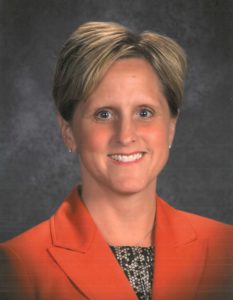Exploring Equity Issues - Blog

One “High-Performing” District’s Path Towards Equity
by Dawn G. Bentley, Ed.D.
Assistant Superintendent for Student Services for the Acton-Boxborough Regional School District
Our Starting Point
During the summer of 2017, my colleague Deb and I were charged with figuring out how to accomplish one of our long-range strategic plan goals around equity, one of our district’s core values. Specifically, we were asked to “conduct an equity audit of the district, looking mindfully at equitable access for historically underserved populations.” While I had extensive coursework around educational equity and school-based equity audits, and Deb was enrolled in a doctoral program focused on equity, we had no idea where to begin.
I called Muhammad Khalifa, Ph.D., one of my doctoral program professors who specializes in equity audits, to see if he had any advice. We spoke with him at length about our dilemma that much of the research around equity audits has been completed in large, urban settings with high African American and Hispanic student populations. Our district demographics differed substantially from this at approximately 60% white, 31% Asian, 4% Hispanic, 4% multi-race, and 2% African American, with just over 6% of our students considered economically disadvantaged. Deb and I also shared that our district has always been high-performing, and that this notion of equity, especially if it means loss for some in order to benefit others, was a tough sell with families and staff. It was then that Dr. Khalifa posed this question, “High-performing for whom?” Not only did that question stun us both into silence, it is the question that continues to be front and center for Deb and me every day and propels this work forward.
For us, the question Dr. Khalifa posed has become our WHY. Long a fan of Simon Sinek’s work, I knew that we needed to start with a “why” in order to persuade people to act and help them understand the moral imperative behind this notion of educational equity. But in a high-performing district like AB, Deb and I struggled to think through how would we compel staff and families to think differently about this work? As Sinek shares in his book Start with Why: How Great Leaders Inspire Everyone to Take Action, “WHY goes much deeper to understanding what motivates and inspires us. It is the purpose, cause or belief that drives every organization and every person’s individual career…Leading with WHY has a deeper, more emotional and ultimately more influential value… how we feel about something… is more powerful than what we think about it…”
They Actually Called Us Back!
Deb and I then did what anyone who loves educational research does- we started by pulling out any books and articles we had on the subject, and then we reached out to the foremost experts in the field- Kathryn Bell McKenzie, Ph.D., Linda Skrla, Ph,D., and Jim Scheurich, Ph.D. And the craziest thing happened. These researchers actually responded! In fact, they did better than just respond. They scheduled phone conferences with us to better understand our needs and what we were thinking and then followed up by submitting proposals to work with our district. Deb and I were beyond excited to be collaborating with folks whom we had long admired!
In our phone conversation with Dr. Scheurich, he asked if we had reached out to our regional equity center for assistance, to which Deb and I responded in unison, “There are regional equity centers?” It was through this conversation that we first discovered the Mid-Atlantic Equity Consortium (MAEC). While Dr. Scheurich was happy to work with us, he shared that these centers receive federal grant dollars to work with districts, and that it would be a free or low-cost alternative to contracting with him or one of his equity colleagues in the field. We continue to be grateful for Dr. Scheurich’s wisdom and guidance on this, as well as the time that Drs. Khalifa, Bell, and Skrla spent thinking with us.
An Equity Request to MAEC
 Deb and I were worried that the results of an equity audit would be difficult for our staff and community to embrace. In the past, we have contracted with experts outside of the district to do work like this and then share the results with staff, our school committee, and the community. So in October 2017, we submitted a formal request to MAEC for assistance with an equity audit, or what we thought would be an equity audit at that time. MAEC responded enthusiastically and requested an on-site meeting to discuss our thinking and our needs for this work.
Deb and I were worried that the results of an equity audit would be difficult for our staff and community to embrace. In the past, we have contracted with experts outside of the district to do work like this and then share the results with staff, our school committee, and the community. So in October 2017, we submitted a formal request to MAEC for assistance with an equity audit, or what we thought would be an equity audit at that time. MAEC responded enthusiastically and requested an on-site meeting to discuss our thinking and our needs for this work.
In November, Deb and I hosted a meeting with Karmen Rouland, Ph.D. and Maria del Rosario (Charo) Basterra of MAEC and Susan Villani, Ed.D., of WestEd, where we shared the history and demographics of the district, identified our current district priorities, and discussed our request for technical assistance. During this meeting, Susan impressed upon us the importance of building local capacity, and how ideally, we should learn to do much of this equity work internally across the district. Of course Deb and I loved the sound of this because we both believe in building strong systems that survive the test of time and can outlive the individuals who initially created them. We also knew that if we brought in outside experts to “do this work to us”, it would situate the power elsewhere, instead of with our own district leaders and educators.
In December 2017, we held a conference call with Charo, Karmen, Susan, and our district central office leadership team to finalize the work that we would do moving forward. We determined that Susan, who lives nearby, would serve as the local facilitator for our equity work. And it was here when things took an interesting turn. After our initial meeting in November, Susan, Karmen, and Charo had apparently
conferred and wondered whether our district would be a good fit to pilot a resource they were collaborating on titled A Data Inquiry Guide for Exploring Equity Issues and Solutions. We of course jumped at the chance to be a part of something we could play a role in developing for other districts like ours to use, while learning along the way. Ultimately, in addition to piloting the data inquiry guide, we also determined that Susan would facilitate a Districtwide Inquiry Team (DIT) that would meet multiple times in the spring to practice and learn how to utilize the data inquiry guide to examine data through an equity lens.
Moving Forward
With Susan’s facilitation, our DIT met three times in the spring of 2018 and examined a few data sets using the Data Inquiry Guide. Group members are at varying stages of comfort with the data inquiry cycle, and we will continue to build their capacity around this in the coming year. To date, the most powerful impact this work has had is that both our DIT and School Leadership Team, comprised of our building principals and central office administrators, engaged in two separate data inquiry cycles (one of which Deb and I co-facilitated!) with the same data set, which has ultimately led to SMART goals embedded in our districtwide Long-Range Strategic Plan.
Joseph Story, a 19th century attorney who served on the U.S. Supreme Court, once wrote, “He who seeks equity must do equity.” While Deb and I are the first to admit that our district has a ways to go to ensure equity for all students, we are positive that our approach to equitable outcomes, through ongoing learning and capacity-building, will ensure that we continue to examine data, policies, procedures, and more through an equity lens, and ultimately help us “do” equity.
The Center for Education Equity (CEE) at MAEC is inviting members of our advisory board, partners, and other colleagues to share their views on current equity issues. Their opinions do not necessarily reflect CEE’s views or those of the Department of Education and we do not necessarily endorse any products or resources they promote.
